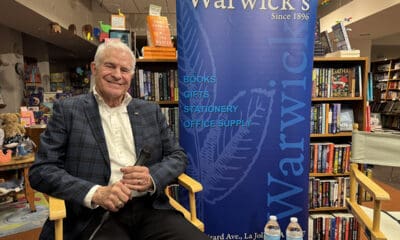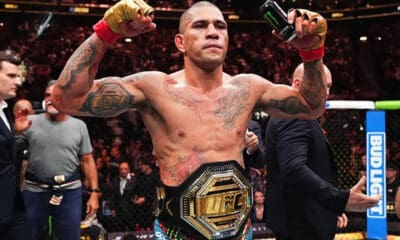If you ask Jermall Charlo, Erislandy Lara, Gennady Golovkin, Demetrius Andrade, or Ryota Murata, they’d all say they’re the middleweight boxing champion of the world. And, all five of them are right — sort of.
That’s one of the biggest problems with boxing today, according to author and Transnational Boxing Rankings Board founding member Springs Toledo. “The main reason why the sport is such a joke now is because of the proliferation of the belts and these so-called world championships.”
It all started in a marshland in New Jersey when legendary Boston sports promoter Tex Rickard borrowed nearly four million dollars in today’s money to build an amphitheater for 90,000 spectators to watch the first National Boxing Association (now World Boxing Association) heavyweight championship. It was billed as the fight of the century, and now 100 years later, that claim has arguably rang true.

It’s amazing they were able to put an event like this together during those times. No Jumbotron in sight.
Jack Dempsey punched George Carpentier 25 times in 31 seconds and then ended the bout in the fourth round with a right hook to the Frenchman’s chest so loud that one newspaper said most of the 91,000 people in the crowd heard it. Dempsey probably could have ended the fight sooner, but his manager — who would later be charged with the murder of a State Senator — told him to make sure it at least lasts long enough to keep the people at ringside like Henry Ford and John D. Rockefeller Jr. happy.
This colorful corruption characterized the sport then and now, but the people who Toledo refers to as the boxing’s early racketeers were “at least fans enough of the sport to only recognize one champion.” Other countries had their own sanctioning bodies too, but by and large, the NBA reigned supreme. “The whole sport was invested in the idea — the common-sense idea — that there’s one world, therefore one champion in each division.”
Boxing’s second sanctioning body, the World Boxing Council, was formed in a meeting in Mexico City orchestrated by that nation’s President Adolfo López Mateos. A hexalingual named José Sulaimán with all the fighting formers — boxer, trainer, commissioner, promoter, referee, and judge — soon became the organization’s President.

When it was created, the WBC said it was going to fight corruption, unify championships, and make sure boxing stayed as one of the most popular sports in the world. According to Toledo, under Sulaimán’s lead then and his son Mauricio’s now, the WBC has actively undermined all of those stated goals. “They started to act without any sense whatsoever very quickly.”
Over the years, two other bodies, the International Boxing Federation and the World Boxing Organization have formed as well. The most famous boxing publication — Ring Magazine — gives out their own titles, too. Today, there are 63 world champions across just 18 divisions. “If you take BS, and you multiply it by three, you’ve got more BS,” said Toledo. “The belts are, in my opinion, the major reason why the sport is a laughingstock.”

Get to know Springs Toledo from this NYF Q&A by Kelsey McCarson. CLICK HERE
The saturation of titles in the sport has made boxing impossible to follow for even its most dedicated fans. At a Madison Square Garden card last year, nobody sitting ringside recognized Danny Rodriguez, a recent WBC welterweight champion when he walked by them.
“I was by the Boston Public Library, and I saw some guy who looked like a sports fan; he had a Patriots sweatshirt on. And I said, ‘Hey, who’s the middleweight champion of the world?’, Toledo said recounting a recent experience.
The man told Toledo he remembered Marvelous Marvin Hagler, who was the champ more than 20 years before.
“I said, ‘who’s the champion now?”
‘I don’t know,” the man answered-.
‘Who’s the heavyweight champion?’ Toledo repeated.
‘I. Don’t. Know.” the man said again.
Without knowledgeable fans ready to hold the fighters, matchmakers, and promoters accountable, Toledo says there’s little incentive for anybody to take the risks necessary to truly become the best. “The way it is now, you’ve got a belt, and you don’t have to fight anybody. Nobody’s paying attention because of the proliferation and the fact that it makes no sense. But if everybody recognized that, what would happen? They’d be forced to fight each other! Why? Because they want to get to the top! Why? Because there’s only one!” exclaimed Toledo. “If you have the belt, you don’t have to fight the lions,” he concluded.
There’s a lot to be discouraged about, but a sport that became famous before it became legal can’t die easy, and Toledo remains optimistic.
“I’m a cynic when it comes to human nature. But when it comes to history, I’m feeling like much more of an optimist. Eventually, common sense comes to the top,” Toledo said and then hesitated. “Eventually.”


























